Uitgelicht in deze blog
Traceability in the Food Industry: The Importance of Technology in Supply Chain Visibility
Traceability in the Food Industry: The Importance of Technology in Supply Chain Visibility
16 Dec 2022
Aptean Staff Writer
Food and beverage manufacturers must be masters of many domains. From new product development (NPD) and highly technical processes to company culture and profitability, there’s no shortage of critical areas for businesses like yours to address—and all demand careful planning and excellent training.
Still, none of the above are as complex or important as the matter of food traceability. Knowing exactly where your materials came from and where they’re headed is difficult, exacting work—but it’s far less difficult than facing the potential ramifications of not ensuring that you can trace ingredients backward and forward in the supply chain.
There are a number of reasons that your organization must prioritize bidirectional food traceability practices, as well as several ways in which complete visibility into your resources and products can pay off with better reliability and customer satisfaction. We’re here to also provide useful, proven strategies for improvement on this critical front, with each having its own unique benefits.
4 Key Reasons To Strive for End to End Food Traceability
Why is traceability so important? There are numerous reasons, and some deal with the punitive consequences of not addressing the matter fully, while others focus on benefits your business can enjoy as a result of putting the right measures in place.
1. Maintaining Compliance With Regulations and Standards
In the U.S., the Food and Drug Administration’s Food Safety Modernization Act (FSMA) stipulates that all food and beverage manufacturers must be able to track their ingredients and products backward and forward by at least one step. The standards are about to get much stricter, though, with the Proposed Rule for Food Traceability coming into effect to impose additional requirements and stipulations.
Another well-recognized set of standards for traceability in the food industry are those established by international non-profit GS1, which center on safety and visibility. Following with these standards also ensures that your organization is in compliance with Hazard Analysis Critical Control Point (HACCP), British Retail Consortium (BRC) and International Featured Standards (IFS) rules.
Fines and potentially worse penalties face companies that are found to be operating outside of regulations, so there’s really no excuse for not guaranteeing total compliance. Thankfully, technology like enterprise resource planning (ERP) solutions make adhering to necessary standards a much simpler process with automated quality checks and on-screen alerts when anomalies are detected. Specialized food and beverage software from Aptean helps you take the hassle out of compliance with food traceability regulations from around the world.
2. Ensuring Recall and Audit Readiness
Mistakes can happen in complicated processes, especially when a complex manufacturing process involves a large number of materials. When something does go awry—an expired ingredient is used in a batch, or a lot becomes contaminated—you need to know right away and have precise information on what went wrong, what was used and where the affected products are now.
This, of course, becomes even more critical when your facilities deal with allergens. Uncompromising food safety standards should be a goal unto themselves, but considering 13 of the 26 USDA food recalls in 2020 were due to undeclared or misbranded allergens, the risk of an allergen getting into a product that should not contain it is a massive financial and public relations liability.
This makes the need for end to end traceability even more clear, and a food ERP system, like Aptean Food & Beverage ERP, is an excellent solution to the problem. By collecting and compiling data into a single database and updating in real time, you always know where your resources are at any stage of the supply chain and can narrow down contamination to individual runs and lots so you know exactly what has been compromised.
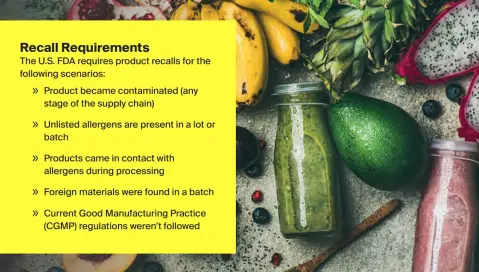
3. Reducing Waste and Spoilage
It follows logically from the previous section that a business with measures in place to limit contamination and control its negative impacts will also have less waste. Lots and runs won’t have to be scrapped due to errors in manufacturing, so you’ll get more out of the raw materials you purchase as more will end up in viable products that can be sold.
Bidirectional traceability features of ERP platforms also gather and maintain complete data on your ingredients, so you’ll have a better grasp of just what you have, what you need and what needs to be used next according to “first expiry, first-out” (FEFO) methodology. That, in turn, informs your purchase planning so that you can dial in and make sure you’ve got enough—but not too much—of the resources you need.
4. Protecting Reputation and Maintaining Demand
Food and beverage businesses want to be in the news for some reasons—launching a popular new product or making strides in sustainability—but, would certainly rather avoid the storm of negative press that comes with a recall or other food safety issue. A serious incident of that nature not only harms the organization’s reputation, but it also dampens demand in the future.
A Harris Interactive poll found that 55% of consumers would switch brands at least temporarily following a recall, while 15% said they’d never purchase the recalled product again; 21% said they’d avoid all products from the responsible brand. Food and beverage companies with superior traceability measures in place enjoy better consumer confidence and more stable operations. And with a platform like Aptean's food ERP on your side, your organization can have instant access to dependably accurate data that allows you to manage any concerns with agility.
4 Ways To Achieve Better Traceability in the Food Industry
Most food and beverage businesses have at least some sort of traceability approach in place, even if it’s pen and paper records or spreadsheets saved to an individual hard drive. For these organizations, the first step to improving in this area should be to eliminate these outdated methods of data capture and move to a fully digital system.
Our food and beverage ERP integrates well with a number of ancillary tracing technologies that will make your processes more efficient and accurate while gathering all of the information necessary to paint a complete picture of your supply chain.
1. Barcodes and Scanners
The tried-and-true barcode systems for quickly gathering and logging information on lots and products can still be very effective when used in conjunction with ERP technology. Just keep in mind that individual employees with scanners will be less reliable than an automated scanning process along your production line.
Batch barcoding scanners offer even greater efficiency, as they compile all information scanned while in use and then transmit the data all at once when returned to their docking station. This is ideal for inventory processes, especially when a large order is received and the system needs to be updated with the associated material and product information.
2. RFID Tags
Radio frequency identification (RFID) technology can be an excellent foundation for establishing an end to end food traceability plan. The variety of tags and their applications goes beyond simply knowing what’s where—they can also be used to monitor temperature and even consumption habits.
Purpose-built ERP platforms can accommodate traceability approaches based on RFID nicely, allowing your organization to gather and analyze a tremendous volume of information within a single, unified interface.
3. QR Codes
Another “successor” to traditional barcodes, QR codes can capture huge amounts of information and are just as easy to scan. This technology has become especially popular with fresh produce businesses, but it can serve most any food and beverage organization looking to improve their traceability efforts.
As with barcodes, it’s best to automate the scanning of QR codes to relieve the burden of memory and accuracy from your employees. Industry-specific food ERP solutions are built to sync with smart scanners and sensors, so it makes sense to pair QR code technology with such a system.
4. Automation
This has been mentioned already, but it’s critical to automate your organization’s scanning, checking and logging processes. Not only do you reduce the risk of human error and increase efficiency, but you can more easily capture complete information, including exact dates and times of material movement, nutrient content, lot numbers for ingredients, quality assurance readings and complete finished good shipment data.
Devices that use Internet of Things (IoT) technology across the food supply chain are great for this purpose and work well with ERP platforms to keep all of your facts and figures up-to-date and easily accessible. That kind of visibility allows you to act on insights quickly—avoiding issues and capitalizing on opportunities as they arise.
Getting on Track With Food Traceability
Plain and simple, food and beverage brands that make a commitment to traceability are less likely to face the potentially devastating effects of a food safety issue and have a far better understanding of their supply chain from start to finish. They also save money on what would otherwise be costly recall and withdrawal processes.
There's no doubt then, that traceability in the food industry should be a top priority for all organizations, and to secure the necessary processes and automations you'll need sophisticated technology on your side.
Enter Aptean. With decades of experience in the industry, we continue to be committed to our food and beverage customers—delivering deep expertise and excellent knowledge of industry challenges as well as the software solutions that can tackle them. We act as a partner to each and every customer, helping to guide project roadmaps for implementation, offering best practice advice and providing support far after the go-live date.
What’s more, with our cloud software options, you're able to take advantage of all the benefits of Aptean Food and Beverage ERP on the Software as a Service (SaaS) model, enjoying full scalability, enhanced data protection, stronger cybersecurity and remote accessibility. Plus, our cloud food ERP solution is comprised of specialized, industry-specific functionality and built on the Microsoft Dynamics 365 Business Central platform, which gives the interface a familiar, user-friendly look and feel.
Aptean's food ERP comes with traceability functionalities built specifically for food and beverage businesses. The solution also integrates with all manner of technologies used for bidirectional tracking of ingredients and products. Is your organization ready to take the next step toward end to end traceability? Reach out to us today.
Related Content
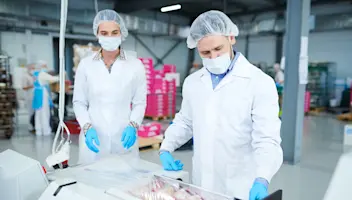
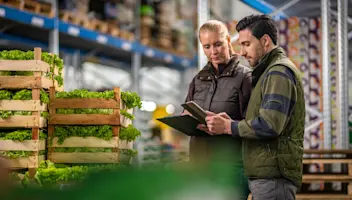
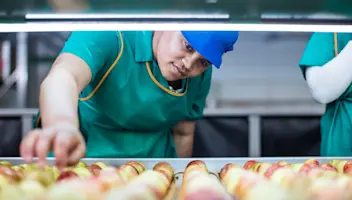
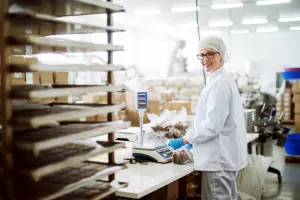
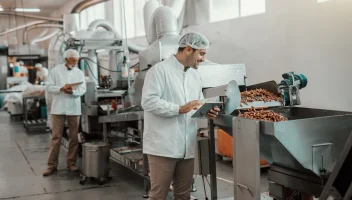
Vergroot de traceerbaarheid in uw bedrijf
Bent u klaar om uw voedings- en drankenbedrijf naar een hoger niveau te tillen? Dan helpen we u graag.



